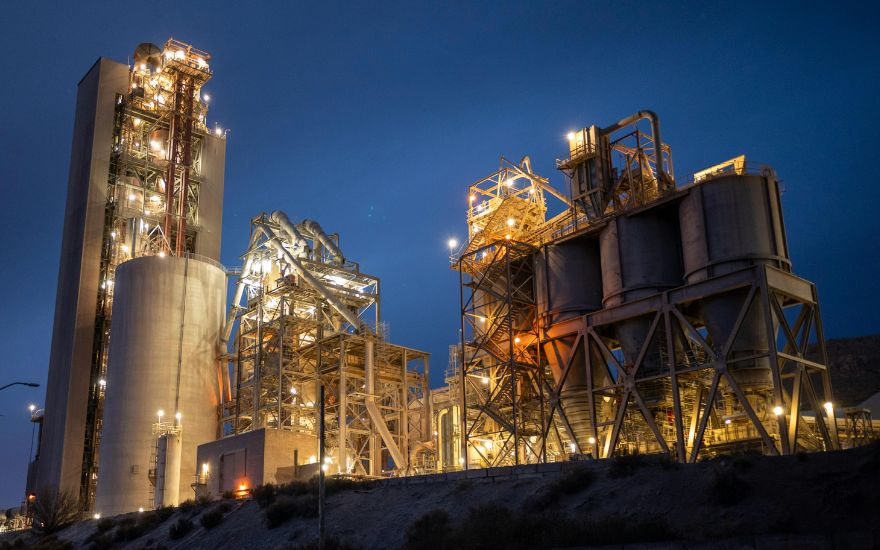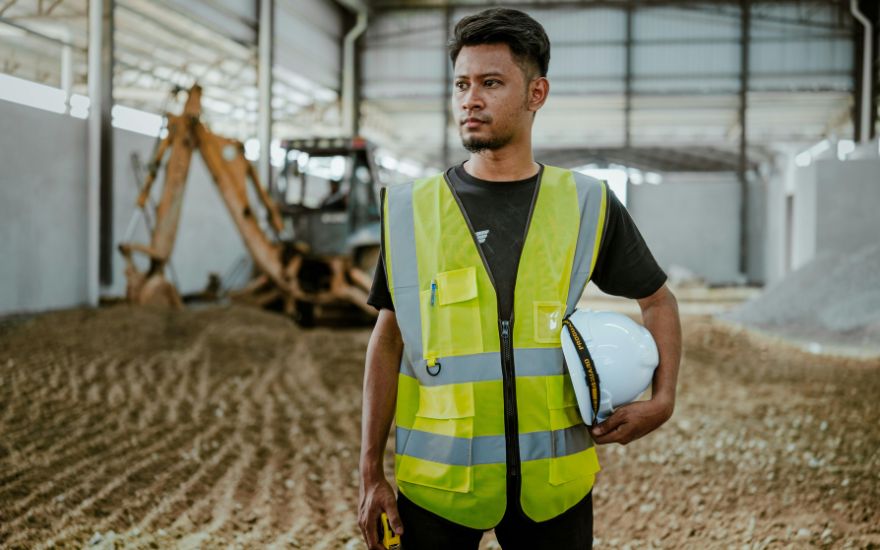Industrial construction is a high-stakes endeavor where every decision can have long-term financial and operational consequences. Whether you’re constructing a manufacturing facility, distribution center, or processing plant, the process involves intricate planning, rigorous safety compliance, and seamless coordination. Unfortunately, many projects suffer from preventable errors that lead to delays, cost overruns, and subpar results. If you’ve ever felt overwhelmed managing such a massive undertaking, you’re not alone. These complex challenges can leave even seasoned project managers scratching their heads, wondering where things went wrong.
In this blog, we’ll explore the most common pitfalls that derail industrial construction projects. From underestimating timelines to overlooking safety protocols, we’ll break down these issues and offer guidance on how to avoid them. By the end, you’ll be equipped with practical insights that will help you steer your project toward success. If you’re looking for experienced, reliable partners in industrial construction, CozyCasa’s professional services are designed to ensure your next project runs smoothly and efficiently.
Crucial Considerations Before Starting Your Industrial Construction Project
Before diving into the complexities of industrial construction, it’s essential to understand the groundwork that ensures project stability. Preparation, compliance, team alignment, and realistic budgeting are critical aspects often neglected at the early stages, leading to larger problems down the line. Addressing these factors proactively can help you manage expectations and mitigate future risks, setting a solid foundation for execution.
Taking time to develop a comprehensive construction plan enables teams to visualize the project from inception to completion. This includes everything from selecting the right site, forecasting potential delays, and aligning stakeholder expectations. With proper planning and foresight, many common pitfalls can be avoided entirely.
Inadequate Pre-Planning and Feasibility Analysis
Rushing through the planning phase is one of the most detrimental mistakes in industrial construction. A robust pre-construction analysis evaluates site conditions, zoning regulations, environmental impacts, and logistical challenges. Overlooking these factors can result in costly mid-project changes that throw off timelines and budgets.
Feasibility studies also help identify hidden constraints early. They provide clarity on whether the project can realistically be completed on budget and schedule. Incorporating this step can prevent future design conflicts, legal issues, and operational inefficiencies. By conducting thorough feasibility checks, decision-makers can determine the viability and potential roadblocks well in advance.
Poor Communication Between Stakeholders
Clear communication is the backbone of any successful industrial project. Misalignment between stakeholders—owners, architects, contractors, and engineers—often causes confusion, rework, and conflict. Without a structured communication process, even small misunderstandings can escalate into significant issues.
Setting up structured communication channels and collaborative project management systems fosters real-time updates and accountability. This ensures that everyone is aligned with timelines, scope, and quality expectations from the start. Weekly update meetings, shared dashboards, and centralized documentation can significantly reduce miscommunication.
Ignoring Legal and Regulatory Compliance
Industrial construction must adhere to strict local and national building codes. Missing permits, overlooking safety mandates, or ignoring environmental guidelines can bring projects to a grinding halt. Non-compliance not only delays progress but can also lead to costly penalties and legal complications.
Regular audits and consultations with legal experts can help maintain compliance. Proactive documentation and reporting mechanisms ensure readiness for inspections and reduce the risk of non-compliance penalties. Engaging a legal consultant early in the planning phase is a wise strategy.
Underestimating Timeline and Budget Requirements
One of the most common errors is misjudging how long and how much a project will take. Optimistic projections can lead to resource strain and stress. Without realistic planning, construction teams may find themselves overworked and underprepared.
Detailed scheduling tools and contingency budgeting allow for a more realistic roadmap. Factoring in delays, material shortages, and weather disruptions gives teams the buffer they need to stay on track. A solid budget should also include allowances for labor, equipment maintenance, and unexpected costs.
Choosing the Wrong Contractors or Vendors
The success of an industrial project heavily relies on the expertise of your construction partners. Hiring based solely on cost without evaluating credentials, past work, and communication skills can spell disaster. A contractor who lacks industrial construction experience can introduce unnecessary risks.
Vet contractors thoroughly. Request references, check portfolios, and ensure alignment on project goals and methodologies. Partnering with experienced teams like CozyCasa can dramatically improve execution quality. Choosing quality over price will always yield better long-term outcomes.
Top Mistakes to Avoid During the Industrial Construction Phase
These H2 sections provide in-depth focus on errors commonly made during the actual build phase. Addressing these can significantly reduce risks and enhance operational efficiency. Once groundwork is laid, the execution phase must be managed with equal precision to prevent unnecessary setbacks.
Neglecting Site Safety Protocols
Industrial sites are inherently hazardous, making safety a top priority. Yet, many construction managers overlook routine checks, staff training, or enforcement of PPE protocols. Neglecting safety can result in accidents that halt construction and damage company reputation.
Regular safety drills, strict enforcement of compliance rules, and visible signage can reduce workplace injuries. A safe site also boosts morale and productivity. Safety should be embedded into company culture, with ongoing training and regular audits to reinforce standards.
Using Low-Quality or Inappropriate Materials
Attempting to cut costs by selecting cheaper materials often backfires. Inferior materials may not withstand industrial loads or harsh environmental conditions, leading to maintenance issues or even structural failure. Poor material choice can increase long-term operational costs significantly.
Work with engineers and procurement experts to select materials that balance durability, sustainability, and cost-efficiency. CozyCasa’s procurement team ensures all materials meet industrial-grade standards. Insisting on quality from the outset is an investment in reliability and safety.
Failing to Update Project Scope and Documentation
Scope creep—when unplanned additions sneak into the project—leads to disorganization and budget strain. Without updated documentation, teams can lose track of project goals. Uncontrolled changes confuse the team and compromise the final deliverable.
Regular scope reviews and change management protocols help maintain focus. Modern project management tools can track scope changes in real time and flag potential overruns. Documentation should be regularly reviewed and updated to reflect current project status.
Overlooking Equipment Logistics and Installation Sequencing
Many industrial builds rely on large-scale machinery and infrastructure. Poor scheduling of equipment delivery or misalignment in installation order can delay operations. Without a well-coordinated logistics plan, site work may have to pause unnecessarily.
Ensure logistical planning is integrated into the master schedule. Early coordination between suppliers, site managers, and installation teams avoids downtime and rework. It’s crucial to sequence tasks logically to optimize workforce productivity and site safety.
Insufficient Quality Control and Testing
Skimping on quality control leads to long-term reliability issues. Every component—from foundation to finishing—should be rigorously inspected and tested. Small defects, if unchecked, can lead to catastrophic failures post-occupancy.
A dedicated quality assurance (QA) team should perform periodic checks. Testing systems under simulated load conditions ensures that they’re ready for full-scale operations. Ongoing testing also helps catch potential problems before they escalate.
Why Choose CozyCasa for Your Industrial Construction Needs
At CozyCasa, we understand the intricate demands of industrial construction. Our team combines technical expertise, project management acumen, and safety-first values to deliver projects that are efficient, compliant, and durable. We believe in proactive planning, transparent communication, and uncompromised quality.
We don’t just build—we collaborate. From the initial feasibility study to the final quality check, CozyCasa offers full-spectrum support tailored to your industry’s needs. Our transparent processes and detailed reporting systems keep clients informed and confident every step of the way. When you choose us, you gain a committed partner who values your vision.
Choosing CozyCasa means choosing a partner that prioritizes precision, accountability, and excellence. Learn more about our industrial construction solutions and discover how we can elevate your next project.
Conclusion
Industrial construction projects come with a unique set of challenges, but with proper planning and execution, these challenges can be effectively managed or even avoided. By being aware of common pitfalls—from poor planning and regulatory oversights to quality control lapses—you can take proactive measures that ensure project success. Learning from past mistakes is key to continuous improvement in future projects.
When it comes to safeguarding your investment and building a facility that stands the test of time, partnering with experienced professionals is key. CozyCasa has the expertise, tools, and commitment needed to bring your industrial construction project to life—on time, on budget, and with excellence. Don’t let common mistakes derail your goals—choose CozyCasa for a reliable, smart construction experience.
FAQs
- What is industrial construction?
Industrial construction involves building facilities like factories, warehouses, and power plants that require specialized infrastructure. - Why is pre-construction planning important?
It helps identify potential risks, ensures regulatory compliance, and aligns all stakeholders on goals and timelines. - How can CozyCasa help with industrial projects?
CozyCasa offers end-to-end industrial construction services, including feasibility analysis, design coordination, compliance checks, and quality execution. - What are common causes of project delays?
Delays often result from poor communication, unexpected scope changes, logistical issues, and non-compliance with regulations. - Is hiring low-cost contractors a good idea?
Not always. Cheaper options might lack experience or resources, leading to quality issues and delays. - What safety measures should be in place?
Site safety protocols include training, PPE enforcement, routine inspections, and emergency response plans. - What is scope creep and how can it be avoided?
Scope creep refers to unauthorized changes or additions. It can be managed with regular reviews and strict documentation. - Why is material quality crucial in industrial builds?
Poor materials can compromise structural integrity and lead to higher maintenance costs. - Can CozyCasa handle regulatory paperwork?
Yes, CozyCasa helps clients navigate permitting, zoning, and environmental compliance.
How do I get started with CozyCasa?
Visit CozyCasa’s website to book a consultation and discuss your project goals.

